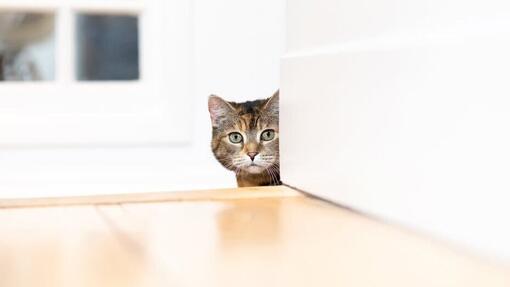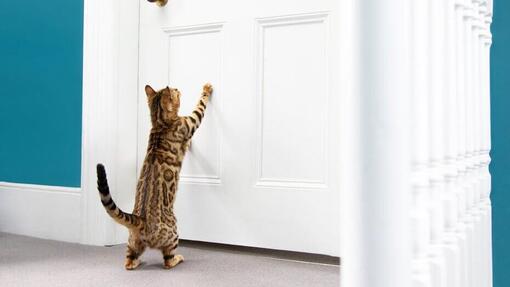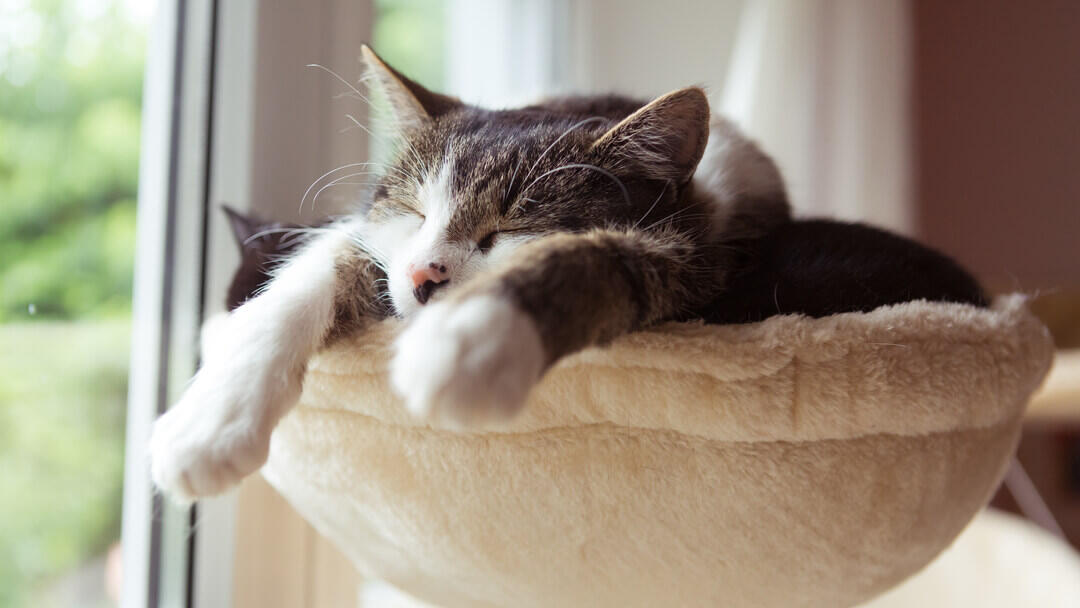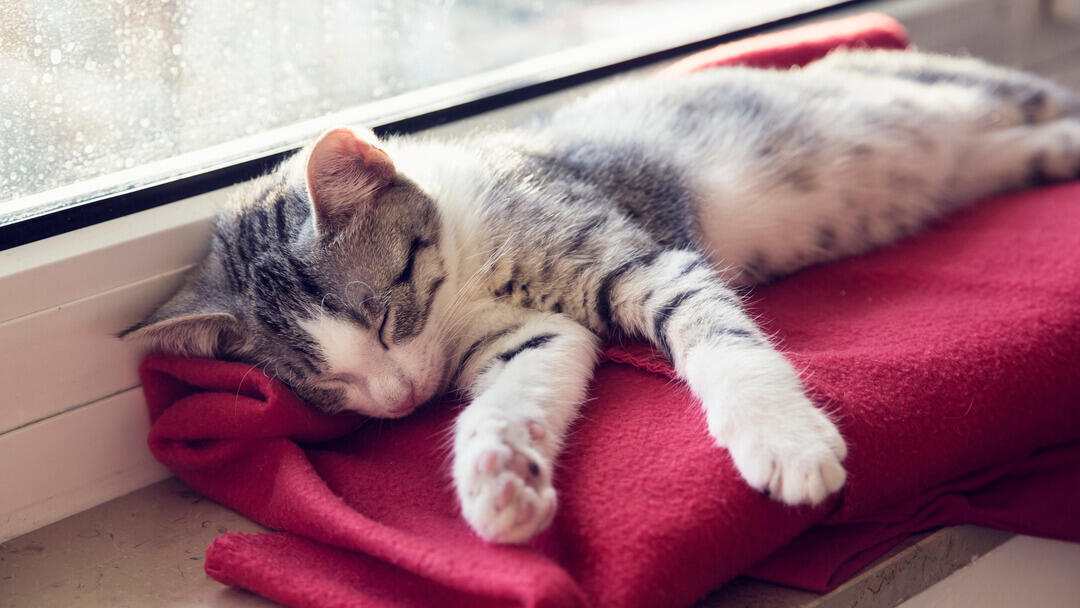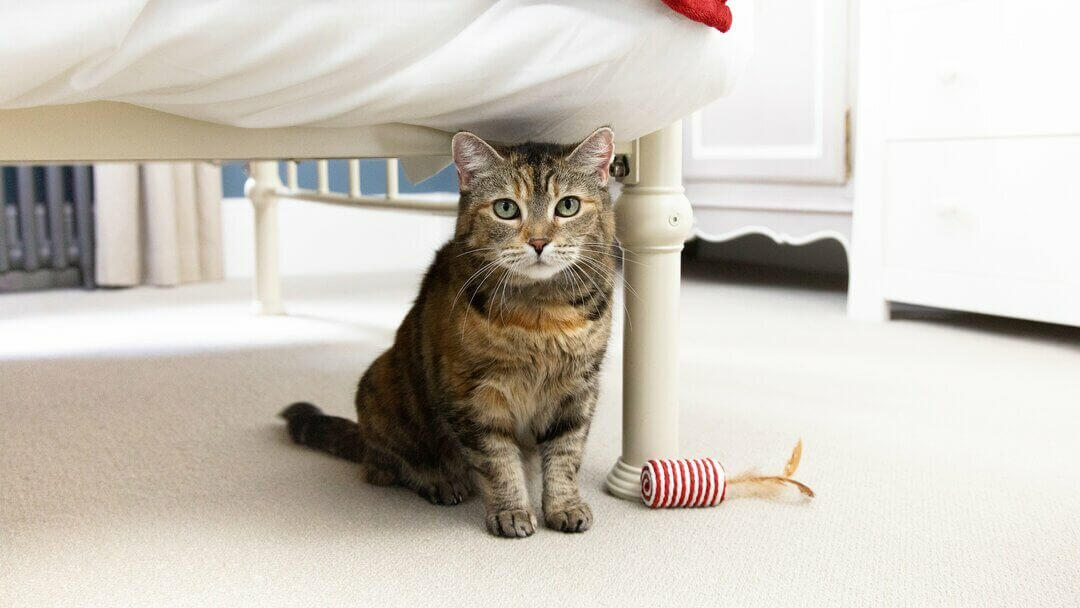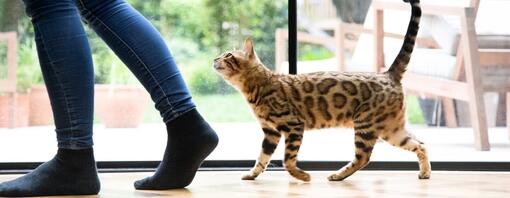
Cats often have a reputation for being independent and aloof. So, you might be surprised to notice that your cat is following you everywhere you go. Are they trying to get your attention, or is this just their way of showing you how much they love you?
Unfortunately, cats can’t tell us directly why they’re following us, but we’ve been around these furry creatures long enough to come up with a good list of possible explanations. If your cat is following you, here is what might be going on.
Why does your cat follow you?
Your cat is following you because they’re hungry
A common reason why your cat is following you around is because they think dinner time may be coming up or they are in hope of a tasty treat. They’ll usually keep their owners in sight, waiting for them to head for the kitchen where they know all that delicious food lives. The moment that cat food is served is an exciting one for any feline. Naturally, they don’t want to miss it.
Your cat is following you because they’ve missed you
If you notice your cat following you closely after you’ve come back home after work or a trip, this could be a sign that they felt uneasy while you were away. Some cats are more attached to their owners than others, and some can even experience separation anxiety – similar to dogs. If you suspect your cat may be suffering from this condition, it’s important to watch out for other signs of separation anxiety in cats, such as refusing to eat, or becoming distressed when you’re heading for the door. And, if you do start to notice any of these signs, it’s best to contact an accredited behaviourist who specialises in cats for further advice.
Your cat is following you because they’re curious
What’s a cat to do when there’s no posts to scratch or toys to chase around the house?
Things can get a little bit boring for our furry friends, so they might start following you around for entertainment. Maybe you’ll open the door to a room they don’t normally have access to, and then they can sneak in and start exploring their new territory. How exciting!
That being said, it is important to provide your cat with enrichment opportunities, toys and activities to keep them occupied, as you won’t always be there to follow around, and no one likes being bored. It’s important to always remember that your cat needs to have an outlet for their natural behaviours, and so need the opportunity to climb, jump, stalk, chase and play – as well as have a variety of places to supervise what is going on – and also hide or just make themselves comfortable. Without that, they can get bored, frustrated, depressed, or stressed.
Some breeds and individuals can be particularly predatory and so have an even greater need for enrichment – Bengals as an example – to prevent behaviour problems.
Toys that you can play with your cat are also a great bonding exercise – and fun for you both.
Scratching posts are really important too so that your cat can keep their claws healthy and sharp, mimicking the claw-sharpening activities of their ancestors, which also helps to improve their general wellbeing.
Your cat is following you because they need your attention
It is also possible that your cat is following you because it’s their way of saying “help”. Perhaps they’re afraid of something or they may be feeling ill and this has caused a change in their behaviour. Sometimes cats experiencing distress will also want to keep as close to their owner as possible. Make sure you look out for other signs and symptoms, especially if your feline is suddenly following you everywhere. If you suspect something is wrong, get in touch with your vet who can first check to see if there is a clinical cause, and then once they have a clean bill of health, talk to an accredited behaviourist who specialises in cats.
It's also worth noting that, although some cats will try and get your attention when they feel unwell, many cats will also do the complete opposite, going off to hide on their own. This can be more challenging for owners as, if your cat is hiding, this will mean their owners are less likely to see them. Because of this, it’s important to be aware if your cat starts hiding away or goes missing and, if you notice these behaviours, seek veterinary advice.
Your cat is following you because they just like your company
Certain cat breeds such as the Ragdoll, Sphynx or the Maine Coon amongst others can have personalities similar to dogs. They’re often sociable and love nothing more than to be in human company and be a part of everything you are doing.. If you own one of these breeds, or a feline that is just generally very affectionate, you may be used to having them follow you around and ‘help’ you with your chores.
Just make sure you offer them plenty of your attention, cuddles (if they enjoy these) and play sessions, as these are great opportunities to interact with your pet and strengthen the bond you have with them. Also, although we’ve listed some of the cat breeds that are most commonly affectionate – remember that all cats have their own individual personality – so any type of cat may become attached to their owner!
What to do if a stray cat is following you?
Stray cats might be able to tell that you have a moggie at home based on their smell, or they may just take a general liking to you – especially if you fuss them. Also, if the cat following you is homeless, you may also be their best chance of attention or a meal. Because of this, strays can sometimes start following you when you’re out and about.
It can often be pretty tricky to tell the difference between a lost or stray cat and an owned cat that’s bored or just loves fuss!
Because of this, if a stray cat is following you, pay attention to their demeanour. If they seem friendly, you can approach them carefully to look for a collar or a tag that might have information about who they belong to. If you are suspicious that a cat is lost or a stray, especially if you have seen them a few times and they don’t have a collar, you should take them to your local vet or rescue centre if they are amenable to being put in a cat carrier without you getting a nip. Otherwise, you can contact your local rescue for their help and advice. They will often be able to scan the cat for a microchip, which if present and up to date, can be used to find their owner’s contact details.
Do not to try to rehome a cat unless you have at least checked their collar and they have been scanned for a microchip as, if the cat is owned, their heart-broken owner may be desperately searching to try and find them. Some cats do wander further form home than others. It is often better for a rehoming centre to sort out a new family for a stray, as they have the expertise to know which environment will best suit each individual.
Next, find out more about what you can do to help a stray cat, from identifying the cat, to finding the owners and how to look after them during this process.



